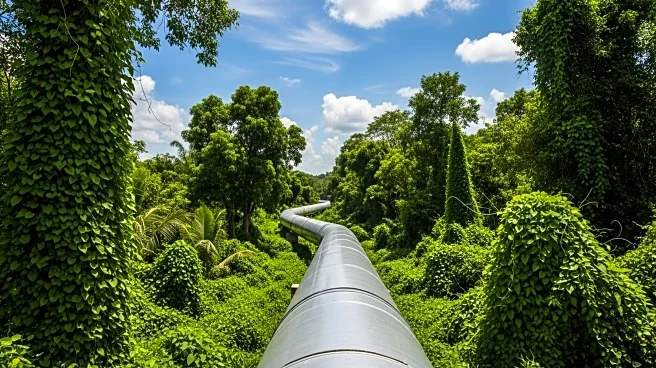What's Happening?
The Panama Canal Authority (ACP) has commenced the selection process for a concessionaire to develop a natural gas pipeline. This initiative was marked by a market engagement event attended by over 45 representatives from global energy companies. The proposed 76-kilometer pipeline aims to connect maritime terminals on the Atlantic and Pacific coasts, forming a crucial part of a new interoceanic energy corridor. This corridor is designed to enhance Panama's competitiveness and address the increasing global demand for energy products. The project will facilitate the transportation of propane, butane, and ethane between the Gulf of Mexico and Northeast Asia, thereby optimizing canal capacity without additional water usage. The ACP emphasizes that the project will adhere to international safety, environmental, and operational standards. Feedback from participating companies will influence the concession structure and roles.
Why It's Important?
The development of this natural gas pipeline is significant as it aims to improve the efficiency and reliability of the Panama Canal, a critical global trade route. By reducing vessel wait times and enhancing the canal's capacity, the project could bolster Panama's position in the global energy market. This initiative is expected to attract substantial international investment and collaboration, as evidenced by the participation of major energy companies like ExxonMobil, Shell, and Mitsubishi. The project could also have broader economic implications, potentially leading to increased trade and energy security for regions connected by the corridor.
What's Next?
The next steps in the project include a prequalification stage for interested companies, followed by further discussions with shortlisted candidates. The final selection of a concessionaire will be based on these dialogues. The ACP will continue to refine the project details, incorporating feedback from industry stakeholders to ensure the pipeline meets global standards and market needs.









